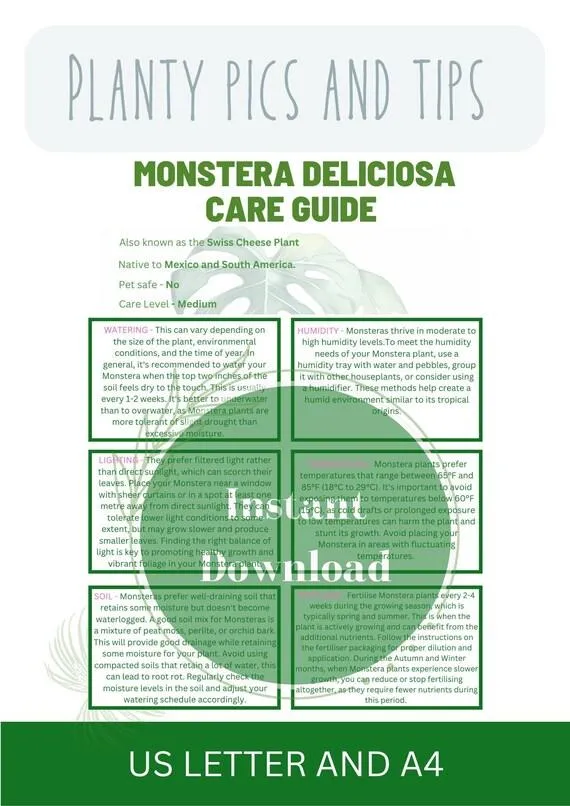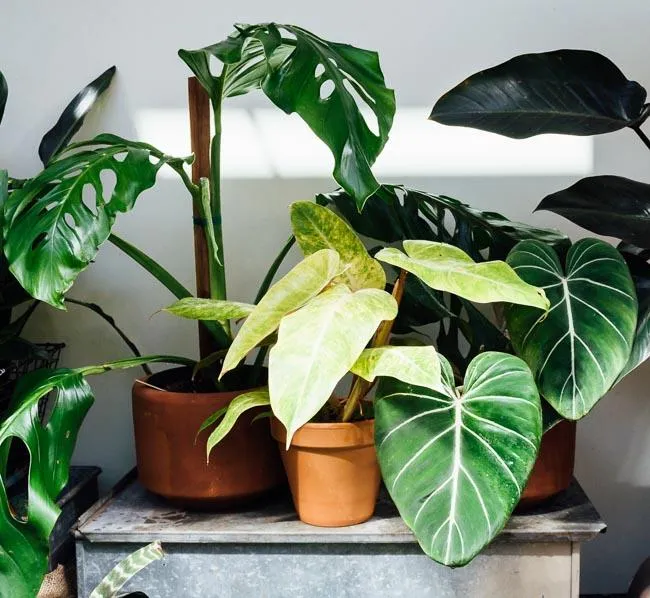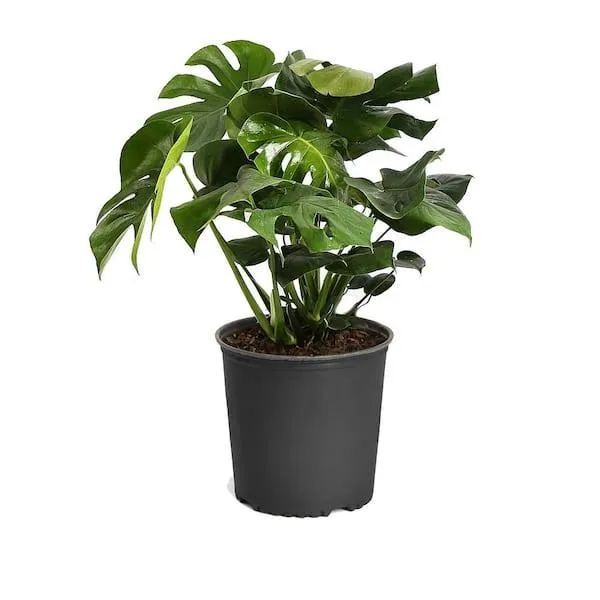Is a Monstera Deliciosa Safe for Your Pooch?
The stunning monstera deliciosa plant, also known as the Swiss cheese plant or fruit salad plant, has become hugely popular as a low-maintenance houseplant. Its large, deeply lobed leaves with natural holes and vibrant green coloring make it an eye-catching addition to any home. However, as more people acquire this plant for decorative purposes, the question arises – is it safe to have a monstera deliciosa if you also have canine companions?
Toxicity Concerns
All parts of the monstera deliciosa contain calcium oxalate crystals, which can cause irritation and inflammation if ingested. From my experience as a veterinarian, calcium oxalate toxicity occurs when dogs chew on or swallow leaves, seeds, or other plant parts. Symptoms range from mild vomiting and diarrhea to more severe swelling of the throat and tongue that could potentially compromise breathing.
The ASPCA lists the monstera deliciosa as “mildly toxic” to dogs. While small amounts are unlikely to be life-threatening for most pups, there is still risk of digestive upset or even an unpleasant swelling in the mouth. It’s best to avoid exposing dogs to any toxin if possible.
Is Ingestion Likely?
Whether a monstera poses a real safety threat depends partly on how likely it is that a dog would actually ingest a toxic part of the plant. Here are a few factors to consider:
- Chewing tendency – Puppies and curious adult dogs may be more inclined to sample new textures like plant leaves. Other dogs show little interest.
- Accessibility – Keeping a monstera high out of reach limits the chance of accidental contact. But a determined chewer could still manage to get to low-hanging leaves.
- Supervision – When owners are present, they can intervene if a dog starts nosing or chewing a plant. But what if they are left unsupervised for periods?
In summary, while some dogs display little interest in houseplants, others may see a monstera as a potential chew toy if given the opportunity. The risks increase with lack of supervision or easy access.
Can Risk Be Mitigated?
Rather than an outright ban, there may be steps owners can take to minimize risk so they can still enjoy monstera plants alongside their canine pals:

- Place the plant high out of reach, such as on a mounted wall shelf.
- Put the pot on a tall plant stand.
- Opt for a hanging basket installation far above ground level.
- Select a plant that is still small and work on training the “leave it” command as it grows larger.
- Supervise dog-monstera interaction and interrupt any chewing attempts.
- Consider a pet-safe fertilizer and well-draining soil to reduce ingestion appeal.
From my experience, most curious dogs can be dissuaded from plant chewing with consistent redirection to acceptable toys. Ongoing training is key as plants increase in size. Shelving high or hanging may be necessary for very determined chewers.
Individual Dog Traits Matter
It’s also important to evaluate your own dog’s personality and chewing tendencies. Puppies in the exploratory phase typically outgrow plant interest, but sometimes become lifelong nibblers. Breed traits like being a powerful chewer versus a more delicate eater also impact plant safety decisions.
For example, bully breeds with strong jaws tend to “sample” many items, while small dogs often avoid rough textures. Dog parents who are vigilant with supervision and have no history of plant chewing may feel confident in having a monstera at reachable levels. But more determined chewers require extra prevention measures.
In the end, every owner must assess their individual dog’s traits and decide whether close supervision is enough, or if total inaccessibility provides greater peace of mind against toxicity risks.
How Dangerous Is Ingestion?
If ingestion does occur despite precautions, it’s important to understand the emergency response required:
- Mild toxicity cases involving small amounts may cause minor digestive upset and are typically not life-threatening.
- However, larger ingestions pose greater risk and should prompt an urgent call to an emergency vet.
- They can assess symptoms like swelling or difficulty breathing and provide treatment such as injectable steroids if reactions develop.
- Gastric lavage may be needed for large leaf consumption to try rinsing remaining toxins from the stomach.
- Activated charcoal can help minimize absorption from the GI tract.
So in summary, while small accidental ingestions may cause temporary discomfort, larger amounts or extended chewing episodes could potentially require medical intervention. It’s always wise to contact a vet right away if a monstera mishap occurs.

Can Dogs Play It Safe Around Monstera?
With diligent supervision and prevention measures tailored to the individual dog, it is totally possible in many situations for pups to live peacefully alongside these stunning plants. However, no guarantee can be given against risks from plant toxicities.
If there is any concern about responsible supervision levels, adherence to training, or a dog’s inherent chewing habits – it may provide better peace of mind to simply avoid monstera deliciosa plants rather than take chances with their health. As any vet will tell you, prevention is preferable to treatment whenever toxins are involved.
So in summary, based on individual dog traits and owner circumstances – a monstera may pose minimal risk with the right precautions, or require complete avoidance. The responsible choice is evaluating each specific situation and prioritizing canine safety above all else.
Final Thoughts
While the monstera deliciosa is undeniably beautiful, its mild toxicity means extra care is merited around dogs. With close attention to access, training, supervision, and individual dog personalities – coexistence is possible for some. However, risk elimination should take priority over plant aesthetics if any doubt arises.
Overall, by educating ourselves on potential pet dangers and taking sensible precautions, we can continue to enjoy houseplants without concern for furry family members. With vigilance, many common plants posing mild risks can still have a place in dog-friendly homes. But safety always comes before decorative interests where our pets are involved.
I hope this overview has helped shed light on navigating monstera ownership responsibly for the inquisitive owners out there. Please contact me with any other questions! The wellbeing of our canine companions should be the top priority in all scenarios.

Is Monstera Deliciosa Toxic to Dogs?
| Detail | Information |
|---|---|
| Toxic Parts | All parts of the monstera plant except the fruit |
| Toxicity Level | Low toxicity |
| Primary Toxic Effects | Mouth irritation, vomiting, diarrhea |
| Other Potential Effects | Rare cases of abdominal pain, drowsiness |
| Likelihood of Poisoning | Low, unless plant is aggressively chewed or large quantities ingested |
| Prevention Tips | Keep plant out of reach, monitor dog closely if ingests part of plant |
FAQ
-
Is a monstera plant poisonous to dogs?
Basically, monstera deliciosa contains calcium oxalate crystals which can cause irritation and inflammation if ingested by dogs. While the plant itself is not highly toxic, it’s best to keep it out of reach of curious pups.
-
What are the symptoms if a dog eats monstera?
If a dog chomps down on monstera leaves or stems, they may experience some mouth pain from the crystals. Other potential signs include drooling, vomiting, and diarrhea. However, it seems minor ingestions usually don’t result in serious issues. Keep an eye on your pup and call the vet if symptoms are severe or don’t improve within a day.
-
Can monstera poisoning kill a dog?
Most vets agree a single monstera leaf probably won’t do much harm. On the other hand, choking hazards exist if a dog gobbles down large pieces. While deaths are rare, the plant contains irritants that in huge quantities could potentially damage the esophagus or intestines. It kind of depends on the size of the dog and amount consumed. So to stay safe, keep this tropical beauty out of munching range!
-
How do I treat a dog for monstera poisoning?
If symptoms occur, inducing vomiting within a hour of ingestion may help. Beyond that, it’s best to contact your vet as soon as possible. They may recommend keeping the dog hydrated and monitoring for adverse effects. Stronger interventions like activated charcoal or medications are on a case by case basis. The prognosis is generally good with prompt care. But it never hurts to get the expert opinion!
-
Can I have a monstera if I have dogs?
Despite the low toxicity, it’s understandable to be wary of plants near pups. However, it’s quite possible to safely include monsteras when dog parenting. Choose a high location out of jumping range. Use bitter spraying deterrents to discourage chewing. Train dogs not to eat houseplants. With precautions like these, you too can enjoy the mysterious allure of these stunning tropicals – even with fur kids underfoot!
-
Are there any non-toxic alternative plants for households with dogs?
Some safer pet-friendly options that are just as gorgeous include english ivy, pothos, philodendron, and snake plant. Spider plants are famously pup-proof and said to improve indoor air quality. Or consider pet-safe succulents and cacti if you prefer a more rugged look. Ask your local nursery for kid and dog safe plant recommendations too. With so many beautiful non-toxic choices, there’s no need to deny your interior that lush lovely jungle vibe while keeping Fido out of harm’s way.

On the other hand, if prevention fails and accidental munching does occur, don’t panic. Call your vet right away and they can properly assess the situation and advise on next steps. Remember, monstera ingestion typically causes minor issues at most. With prompt care, most dogs recover completely. Nevertheless, keeping all houseplants out of puppy reach is always the safest approach. Does this FAQ help answer your questions about monstera toxicity to dogs? Let me know if you need any clarification or have additional concerns!
